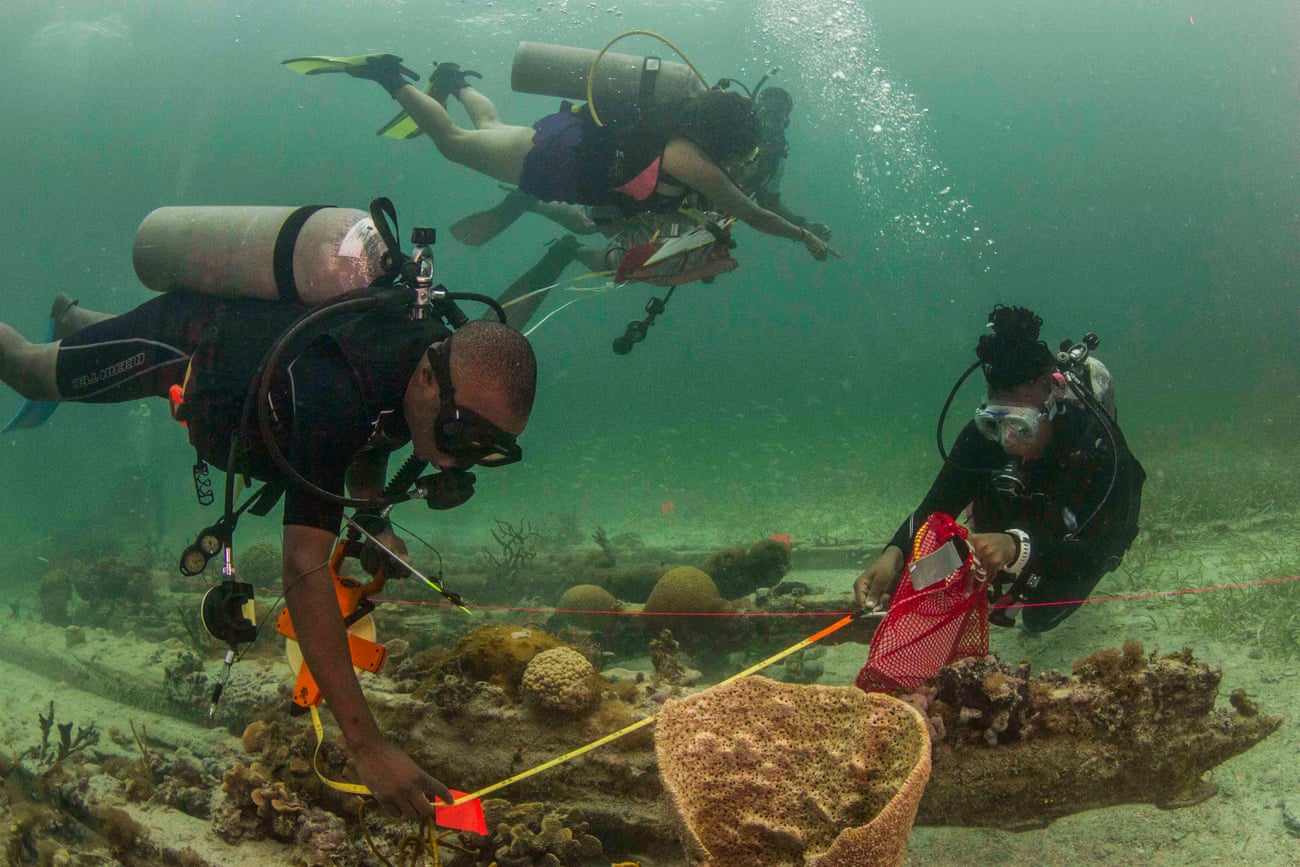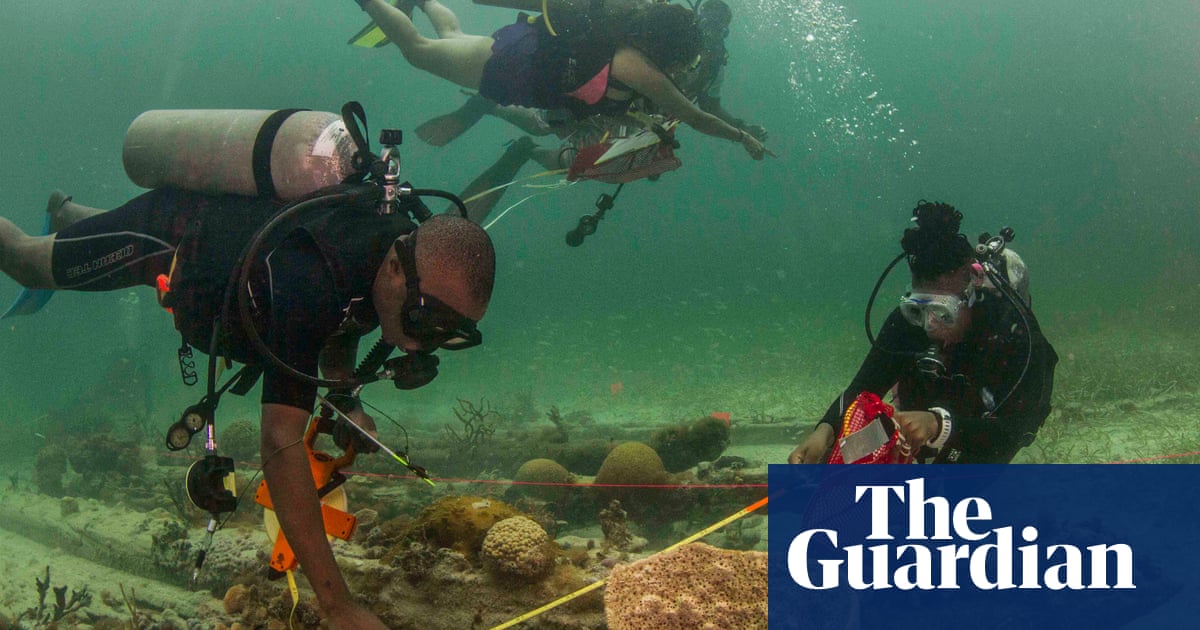RickyDiBiase
aka Hash Brown Hands

Onboard a boat off the Florida Keys, I witness a group of divers, aged 16 to 20, freeing themselves from the weight of their air tanks and masks before diving back into the waters of Biscayne national park. Where Biscayne Bay meets the Atlantic Ocean, their heads break the surface, bobbing in the open sea like specks of stars in the sky.
It’s a breathtaking sight.
A national study conducted by the USA Swimming Foundation estimated that 64% of Black children can’t swim. It’s an alarming statistic that speaks to years of segregation, a lack of public infrastructure and a fraught history with the water. Yet, despite these challenges, Black divers are reconnecting with the water with the support of non-profit organizations like Diving with a Purpose (DWP).
DWP, led by diving veterans in their 70s and 80s, mentors young divers of color in underwater archaeology. The organization focuses on protecting submerged heritage sites, particularly shipwrecks related to the Atlantic slave trade.
Since 2005, DWP has helped uncover 20 such sites, including the São José Paquete África, a Portuguese slave ship that sank off the coast of South Africa in 1794, killing more than 200 captured Africans on board. By finding the remains of these ships – many lost at sea on their way to the Americas – the divers shed light on the most horrific trade in human history. Confronting a warming ocean, DWP’s mission has evolved from preservation to include conservation. Its efforts now include nurturing coral growth; teams have planted more than 2,000 elkhorn corals in bleached, overheated waters.
“How do we memorialize an event that is still unfolding?” asks the Black studies scholar Christina Sharpe, referencing the enduring impact of the Atlantic slave trade. These divers do so by caring for gravesites and placing “flowers” – the corals they nurture to full bloom. Here, they tell the Guardian why this work matters.
Kenneth Stewart sits on the porch of his home in Nashville, Tennessee. It’s been a blisteringly hot week for the 79-year-old diver, with temperatures nearing 100F (38C). In these conditions, water is a welcome reprieve.
“I dive because it’s peaceful, the weightlessness,” he says. “It’s spiritual.”
For 24 years, Stewart has led a team of African American divers in Biscayne national park in search of the Guerrero. The Spanish slave ship, caught by the British Royal Navy in 1827, was found illegally transporting 561 enslaved Africans to Cuba. During an ensuing chase, the ship crashed into a reef, splitting in two and resulting in the deaths of 49 people onboard. The exact location of the wreckage remains unknown.
For Stewart, learning about the Guerrero sparked a desire to find the remains of the ship and others like it. In 2005, he founded DWP to train divers in civilian archaeology and assist in documenting shipwrecks worldwide.
“I’ve been on several slave ships, and it’s an eerie feeling,” Stewart says. “Of the 49 who died on the Guerrero, we don’t even know their names.”
Over the years and through a partnership with the Smithsonian’s Slave Wrecks Project, Stewart and his team of divers have contributed to documenting the slave ship the Clotilda, the British steamship Hannah M Bell in Key Largo, and a lost Tuskegee airmen P-39 aircraft in Lake Huron.
In each excavation, the artefacts they find vary – sometimes it’s a cannon, a pulley, or wooden fragments – but the feeling remains the same. They are uncovering remnants of history, literally bringing them to light after hours of fieldwork, surveys and sonar scans. As African American divers, they’re also uncovering parts of their own heritage with each excavation.

The Black divers excavating slave shipwrecks: ‘I’m telling my ancestors: I’m with you’
Members of Diving With a Purpose search out and investigate the vessels’ remains, bringing history to light and memorializing lost lives

 More Black divers!
More Black divers!






